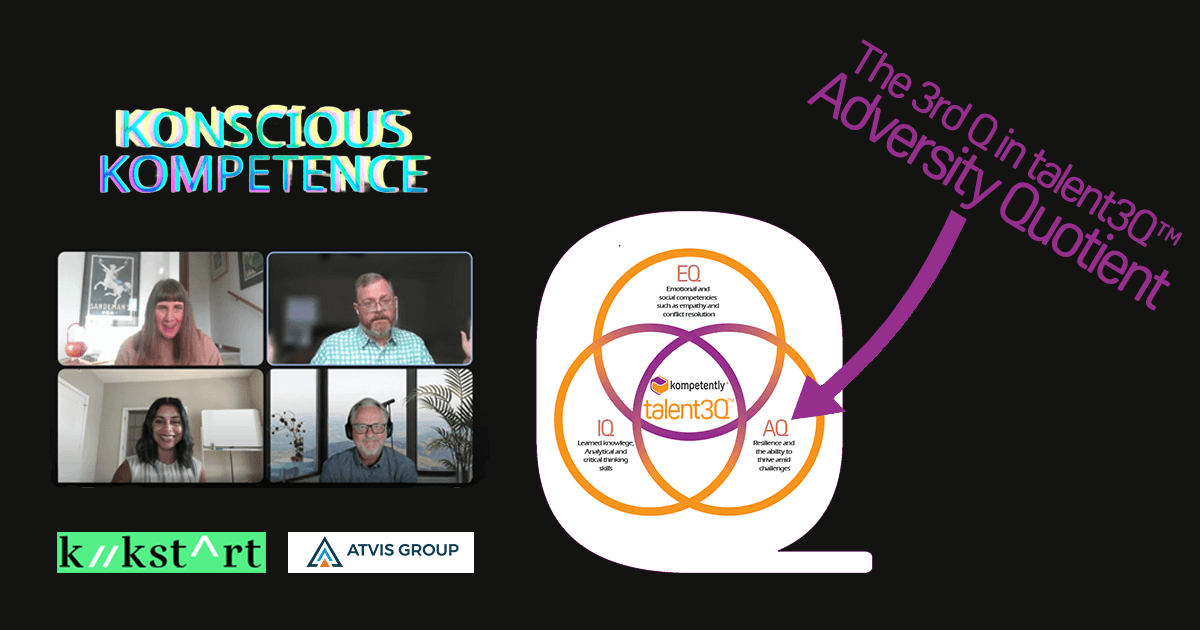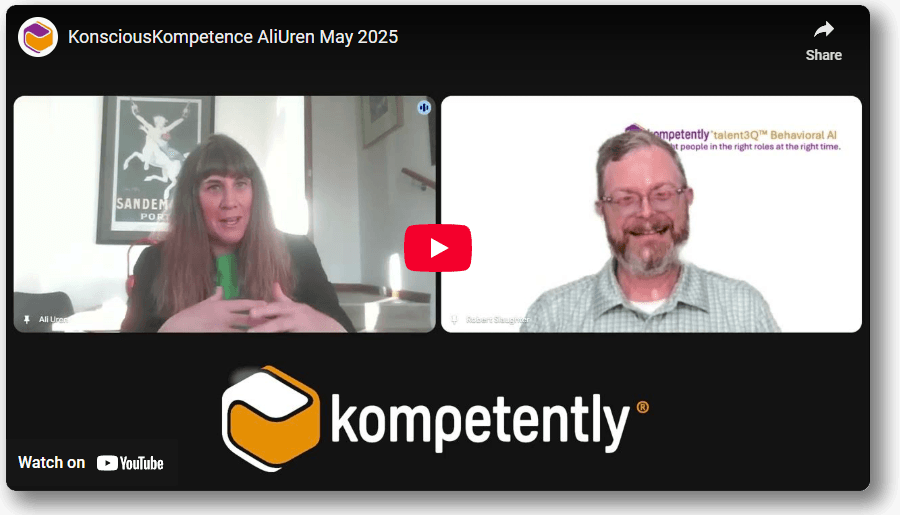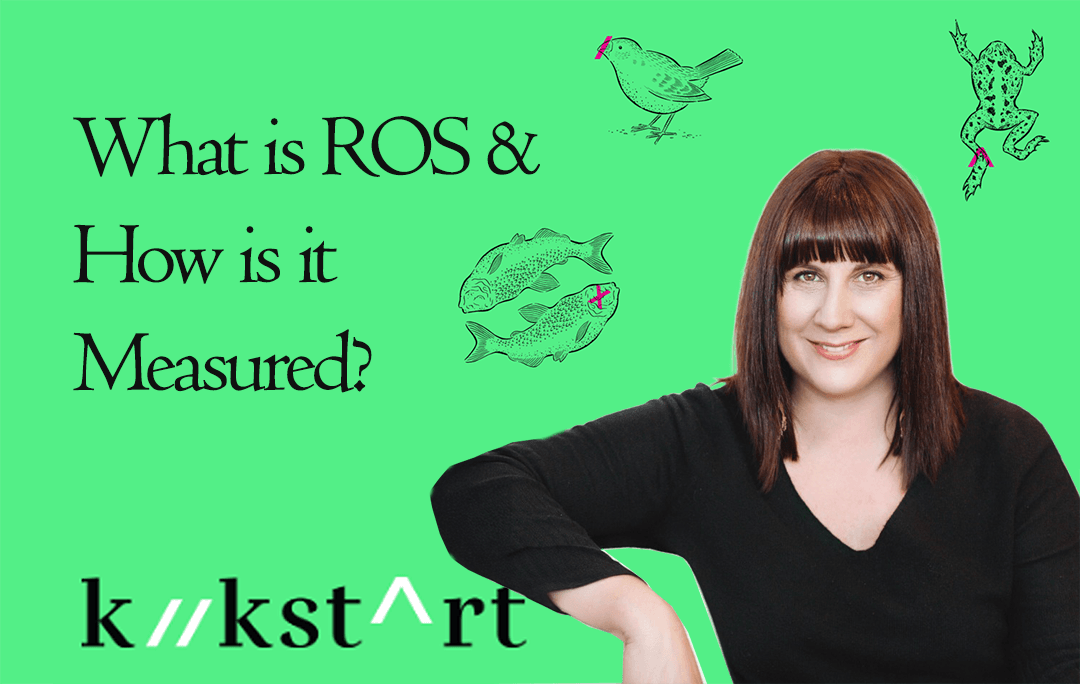Human Potential,Technical Barriers
GenAI Adoption Success:
The Non-Technical Challenges That Are Holding You Back
The Power of Soft Skills in AI
Generative AI (GenAI) promises to unlock opportunities for productivity and innovation across organizations. According to McKinsey, roughly 75% of GenAI’s value is found in four pivotal functional areas—customer operations, marketing and sales, software engineering, and R&D.
Significantly, more than half of this impact is concentrated in non-technical areas such as customer operations and marketing, highlighting the necessity for competencies beyond traditional technical expertise. To maximize GenAI’s potential, organizations must prioritize the development of soft skills like communication, critical thinking, creativity, and empathy. These capabilities are crucial for converting AI insights into strategic actions and facilitating meaningful transformation and growth. This post examines the key soft skills required to harness GenAI effectively and outlines strategies for optimizing non-technical functions for sustained success.
The Upside of GenAI Adoption Success
The potential for GenAI to revolutionize labor productivity is real, with projections indicating a possible 0.6% annual growth in productivity through 2040. This increase would enhance current operational efficiencies and fundamentally reshape how organizations function, delivering significant economic benefits. However, achieving this promise isn’t straightforward; it hinges on organizations’ ability to manage and execute comprehensive workforce transformations effectively.
In the study, several factors emerged that influence the adoption of Generative AI (GenAI). The primary motivations for embracing GenAI include the desire for uniqueness and the comprehensive nature of the information it offers. Additionally, the convenience it provides is a strong incentive.
What is the impact of GenAI adoption on the overall performance of B2B firms?
Adopting Generative Artificial Intelligence (GenAI) in B2B firms significantly enhances their overall performance. This innovation streamlines processes, boosts efficiency, and fosters innovative problem-solving. Companies embracing GenAI typically experience improved operational outcomes such as increased productivity and reduced costs.
Moreover, the relationship between GenAI adoption and firm performance is further influenced by the leadership style within the organization. Leaders who uphold ethical standards can enhance the beneficial impacts of GenAI, ensuring technologies are harnessed responsibly and effectively.
For businesses planning to integrate GenAI, these insights emphasize the importance of ethical leadership alongside technological advancements. This dual approach doesn’t just spur growth but also aligns with broader business values and strategic goals. As a result, companies better equipped technologically and ethically can secure a competitive edge in their respective industries.
Conversely, certain concerns discourage GenAI adoption. A significant issue is the potential for deceptiveness, where users may find the information misleading or not entirely trustworthy. Furthermore, the challenge of information overload also serves as a deterrent, as users may feel overwhelmed by the sheer volume of content generated.
Generative AI Market Overview and Projections
The current landscape of the generative AI market is robust, characterized by rapid advancements and increasing commercialization. As of now, the industry is witnessing substantial growth due to the increasing demand for automation and artificial intelligence solutions across various sectors.
Market Size and Future Growth
The market size for generative AI is expanding dynamically. It’s projected to see significant growth leading up to 2030, driven by technological innovations and widespread adoption. The global market is expected to reach remarkable figures, highlighting the escalating investment and interest from businesses seeking competitive advantages through AI.
Emerging Trends
Several key trends are shaping the generative AI market:
- Enhanced Creativity and Content Generation: AI is increasingly being used for creative processes, including art, music, and content creation, transforming traditional industries.
- Advanced Automation: Businesses are leveraging AI to automate complex processes, reducing operational costs and improving efficiency.
- Personalization at Scale: There is a growing demand for personalized experiences, with AI enabling tailored recommendations and interactions in real-time.
Market Drivers and Opportunities
The driving forces behind this growth include:
- Technological Advancements: Continuous innovation in AI technologies is propelling market growth, enhancing capabilities and expanding applications.
- Increased Adoption Across Industries: Sectors such as healthcare, finance, and retail are increasingly integrating AI to optimize performance and drive decision-making.
- Investment in AI Infrastructure: Companies are investing heavily in AI infrastructure, seeking to harness the full potential of generative AI technologies.
These trends and drivers present numerous opportunities for startups and established organizations to innovate and capitalize on the burgeoning demand for AI solutions. As the market evolves, businesses that effectively navigate these opportunities stand to gain a significant competitive edge.
Generative AI and innovation are significantly reshaping organizational performance in the manufacturing sector, driving efficiency and enhancing competitive advantage. Here’s how:
Streamlining Operations
Generative AI technologies are revolutionizing production processes by optimizing resource allocation and scheduling. Manufacturers can leverage predictive analytics to anticipate equipment malfunctions and reduce downtime, ensuring smooth and uninterrupted operations.
Enhancing Product Design
Through AI-powered design tools, manufacturers gain the ability to simulate and refine product prototypes swiftly. This accelerates the development cycle, reduces material waste, and results in more innovative and market-ready products. The dynamic nature of AI allows for rapid adaptation to consumer demands and emerging trends.
Quality Control and Assurance
AI-driven systems in manufacturing now provide real-time quality monitoring, which speeds up defect detection and correction. Machine learning algorithms continuously improve their diagnostic abilities, ensuring that products meet the highest standards and reducing the cost of quality failures.
Boosting Supply Chain Efficiency
Innovation in AI supports enhanced supply chain management by improving demand forecasting and inventory management. This leads to smarter logistics operations, optimizing routes and reducing delivery times while minimizing costs.
Facilitating Human-Machine Collaboration
The integration of AI in manufacturing empowers workers through augmented intelligence, enhancing decision-making and operational precision. This symbiosis between human ingenuity and machine efficiency unlocks unprecedented levels of productivity and innovation.
In summary, generative AI and innovation are transforming manufacturing organizations by streamlining operations, enhancing product design, boosting quality control, and optimizing supply chains. The sector now stands at the forefront of a technological revolution, poised for continued growth and advancement.
Theoretical Implications of GenAI Adoption in B2B Firms
This study dives into the underlying mechanics of General Artificial Intelligence (GenAI) adoption within B2B environments, setting the stage for deeper theoretical development. By applying behavioral reasoning theory, it reveals crucial determinants that influence the choice to adopt or reject GenAI. Specifically, the study identifies core motivations such as the need for uniqueness, ensuring information completeness, and the convenience GenAI offers as primary drivers for adoption.
Drivers and Hindrances of Adoption
Conversely, it also highlights impediments like deceptiveness and information overload as significant barriers. These insights pave the way for further investigation into the influence and balance of these factors. Key questions arise, such as the comparative strength of these reasons and how they interact—whether they reinforce each other to boost adoption or clash, potentially hindering GenAI acceptance.
Role of Ethical Leadership
Moreover, the findings extend to the influence of ethical leadership on GenAI’s impact on firm performance. The research suggests that firms exhibiting strong ethical leadership witness notable performance enhancements when adopting GenAI. This prompts important inquiries into the dynamics of this relationship, such as whether the influence of ethical leadership is linear, increases or decreases over time, and what the optimal level of ethical leadership might be to maximize GenAI benefits.
Stakeholder Impact
Further, the study opens up questions regarding the broader implications of GenAI adoption on various stakeholders. It asks to what extent different stakeholders perceive benefits from the increased integration of GenAI in their business operations. This line of inquiry could refine our theoretical understanding of how GenAI transforms not just internal company dynamics but also external perceptions and stakeholder relationships.
By examining these elements, the study lays a foundational framework for comprehending and enhancing the strategic implementation of GenAI in B2B settings.
Key Findings from the Study on GenAI Adoption in B2B
The qualitative study on B2B managers’ perspectives regarding the adoption of Generative AI (GenAI) unveils both motivating factors and concerns.
Motivations for GenAI Adoption
- Need for Uniqueness: Managers recognized GenAI’s potential to bolster unique business offerings, enabling firms to distinguish themselves within competitive markets.
- Information Completeness: The ability of GenAI to synthesize and deliver comprehensive information was seen as a valuable asset, enhancing decision-making processes.
- Convenience: The technology was applauded for streamlining operations, thus increasing efficiency and reducing the time needed for various tasks.
Concerns Against GenAI Adoption
- Deceptiveness: There were apprehensions about the potential for GenAI to present misleading information, which could undermine trust and reliability.
- Information Overload: Managers expressed concerns that excessive data generated by GenAI could lead to overwhelming scenarios, making it challenging to sift meaningful insights.
Methodology Insight
The study involved interviews with 27 industry professionals from seven countries: the USA, UK, Canada, India, Australia, Malaysia, and Japan. Participants were chosen based on their direct experience with GenAI, and interviews continued until no new themes emerged, ensuring a comprehensive understanding.
Analytical Approach
Researchers utilized a mix of deductive and inductive reasoning, coding responses into thematic categories. This rigorous process helped ensure the findings were both robust and aligned with existing literature while allowing for the discovery of new insights.
In summary, while GenAI offers valuable benefits in uniqueness, completeness, and convenience, concerns about deceptiveness and information overload pose significant barriers to its adoption.
Key Drivers for B2B Managers Embracing GenAI
B2B managers are increasingly turning to Generative AI, motivated by several compelling factors. Here’s what drives their decision to adopt:
Desire for Uniqueness: The ability to create distinctive content and solutions sets them apart in a competitive market.
Comprehensive Information: GenAI offers a rich, exhaustive pool of data, enhancing decision-making and strategic planning.
Convenience: Simplifying processes and saving time make GenAI an attractive choice for streamlining operations.
However, it’s important to note the challenges that also exist. Concerns about the potential for misleading outputs and the overwhelming amount of information can deter its adoption.
Understanding these dynamics helps in crafting strategies that address both the advantages and the concerns associated with GenAI in the B2B realm.
Applications of Generative AI in Marketing
Generative AI is revolutionizing marketing strategies by enabling hyper-personalized content creation. Imagine tailored advertisements or unique email campaigns crafted specifically for an audience segment. AI-driven tools can now automate and optimize these processes, making real-time adjustments based on consumer behavior and preferences. Additionally, generative AI assists in developing virtual customer service agents that enhance user experience by offering immediate responses and solutions.
Opportunities for Generative AI
The integration of generative AI presents incredible opportunities. Businesses can achieve a deeper understanding of market trends and customer desires through predictive analytics. This data intelligence allows companies to not only meet current market demands but anticipate future ones, giving them a competitive edge. AI’s capacity to streamline marketing activities reduces costs and increases efficiency, ultimately boosting return on investment.
Challenges Facing Generative AI in Marketing
Despite its advantages, there are significant challenges to consider. Privacy concerns are at the forefront as companies navigate the complexities of data usage while maintaining compliance with regulations like GDPR. There’s also the risk of AI generating biased or inappropriate content if the algorithms are not properly trained. Moreover, businesses must ensure their teams are adept at leveraging AI tools, necessitating ongoing education and adaptation to rapidly evolving technologies.
Research Agenda for Generative AI
Continued research is essential to harness the potential of generative AI in marketing fully. Focus areas include improving AI’s ability to understand and predict customer needs accurately and ethically. Researchers are also developing methods to mitigate biases in AI-generated content. Additionally, there is a push towards integrating AI systems that can adapt swiftly to varying market conditions without human intervention.
By addressing these areas, businesses can leverage generative AI to not only enhance their marketing efforts but to push the boundaries of what’s possible in consumer engagement.
How Convenience Drives GenAI Adoption Among B2B Managers
In the realm of B2B operations, the convenience of GenAI tools proves to be a compelling factor for their adoption. At its core, convenience allows tasks to be completed efficiently with minimal effort, which significantly increases user engagement.
Time Efficiency and Simplified Processes
GenAI tools are celebrated for their ability to streamline processes. Imagine being able to generate high-quality content with just a few prompts—this is akin to having an on-demand content creator available at any moment. Such efficiency not only saves time but also reduces the effort required for content creation.
For instance, many managers used to rely on lengthy brainstorming sessions. Today, they utilize GenAI for prompt-driven content creation, thus freeing their creative teams to concentrate on strategic and innovative pursuits.
User-Friendly Interfaces
Another aspect of convenience is the user-friendly interface of GenAI tools. These are designed to be intuitive so that even team members without technical backgrounds can navigate them effortlessly. It’s much like having an advanced content generator with a straightforward manual, ensuring that nobody feels left out due to complexity.
Overall Appeal in B2B Environment
Managers in B2B settings are more likely to embrace GenAI tools as they perceive these solutions to enhance workflow convenience. The perception of convenience directly contributes to the belief that these tools facilitate task completion effectively, thereby strengthening their attractiveness.
In conclusion, the convenience offered by GenAI tools—measured by time savings, simplified processes, and ease of use—plays a pivotal role in encouraging B2B managers to adopt these technologies. This streamlined workflow not only boosts productivity but also enhances the overall utility of the tools in the business environment.
Challenges to Realizing GenAI’s Potential:
While the upside is undeniable, many organizations are not currently equipped to manage the complexities associated with GenAI adoption. A critical challenge lies in assessing teams’ existing capacity, capabilities, and competencies. Understanding these elements is essential for identifying gaps that must be addressed to harness GenAI effectively.
Furthermore, technological advancements necessitate a parallel evolution in workforce skills. Organizations must prioritize upskilling and reskilling initiatives to align employee capabilities with new AI-driven roles. This involves enhancing technical skills and cultivating soft skills—critical thinking, adaptability, and effective communication—that empower employees to work alongside AI technologies.
B2B managers are weighing the benefits and drawbacks of integrating generative AI (GenAI) into their operations. On the plus side, they see three compelling reasons to embrace this technology:
- The Desire for Uniqueness: GenAI offers businesses the opportunity to craft distinct and innovative solutions or products that stand out in the marketplace.
- Comprehensive Information Delivery: It helps managers gather and synthesize vast amounts of data, enhancing decision-making by providing a more complete picture.
- Ease and Efficiency: The convenience factor is significant, as GenAI streamlines processes, automating tasks, and reducing manual effort.
However, there are also notable concerns that are causing hesitation:
- Potential for Deceptiveness: There is a risk that GenAI may produce misleading information, which can impact business decisions and credibility.
- Information Overload: With an abundance of generated data, managers worry about being overwhelmed, leading to decision fatigue or analysis paralysis.
Overall, these factors highlight the complex considerations B2B managers face when deciding whether to incorporate GenAI into their strategic toolkit.
Pathways to Overcome These Barriers:
To unlock GenAI’s transformative potential, organizations need to embrace strategic workforce management practices. This includes:
Step 1
Comprehensive Skills Assessment
Conducting a thorough evaluation of current workforce skills is the first step. This assessment helps identify gaps and informs the development of targeted training programs to enhance both technical and soft skills.
Step 2
Strategic Upskilling Initiatives
Develop tailored learning pathways that focus on upskilling and reskilling employees. This empowers them to transition into AI-centric roles and leverage their unique human attributes effectively.
Step 3
Flexible Workforce Redeployment
Create dynamic strategies for redeploying employees into new roles generated by AI automation. This approach not only preserves employment but also positions organizations to capitalize on emerging opportunities.
Perspectives and Future Directions for Generative AI Across Various Disciplines
Generative AI is rapidly transforming a variety of fields, offering both exciting opportunities and complex challenges that warrant further exploration. Below is an overview of its impact across key sectors:
Hospitality and Tourism
In the hospitality and tourism industry, generative AI is poised to revolutionize customer experiences and operational efficiencies. By harnessing AI’s ability to personalize services and predict consumer trends, businesses can enhance customer satisfaction and streamline processes. Researchers are focusing on developing frameworks to guide the integration of AI technologies in this sector, aiming to balance innovation with sustainable practices.
Computer Information Systems
Within computer information systems, generative AI is driving forward the capabilities of data analysis and decision-making processes. Experts are examining the potential for AI to improve data management, security, and automation. As AI continues to evolve, its role in facilitating more intelligent, adaptive systems will only grow, with future research concentrating on ethical implications and technological advancements.
Education
In education, the debate around AI ranges from its potential to revolutionize learning environments to concerns over disparities it might create. Generative AI offers tools for personalized learning experiences and administrative efficiencies. However, this is met with questions about the role of educators and the balance between technology and traditional teaching methods. The future direction looks at AI as a complement to educators, enhancing rather than replacing human interaction.
Medicine and Healthcare
Generative AI in medicine and healthcare holds promise for both patient care and medical research. It presents opportunities for enhanced diagnostic tools, personalized medicine, and efficient data management. However, the integration of AI in healthcare comes with challenges, including ensuring patient privacy and navigating regulatory landscapes. Future directions will likely involve partnerships between AI developers and healthcare professionals to safely and effectively implement these technologies.
Conclusion
Across these varied disciplines, generative AI offers transformative potential, though it also introduces new challenges that must be addressed through thoughtful research and collaboration. The future lies in balancing innovation with ethical and practical considerations, ensuring AI’s benefits are realized across society.
Key Soft Skills for AI Success
Decision-Making
Strong decision-making correlates with a 2.8-fold increase in innovation (McKinsey). It is crucial for interpreting AI insights within strategic and ethical frameworks, ensuring informed and responsible actions in leveraging AI technology.
Critical Thinking
Embracing innovative thinking boosts efficiency 2.3 times and results 2.4 times (McKinsey). Encouraging a culture of creativity and open-mindedness allows organizations to capitalize on new technologies and explore novel problem-solving and strategy development approaches.
Communication
Effective communication leads to 2.8 times more efficiency and 3.1 times more innovation (McKinsey). Clarity in conveying AI insights and translating data-driven recommendations into actionable strategies ensures that teams can harness AI’s potential comprehensively.
Trust
Building trust within teams is foundational. It enhances efficiency by 3.3 times and increases the probability of achieving results by 5.1 times (McKinsey). Trust enables seamless collaboration, ensuring team members are aligned in their objectives and open to AI-driven enhancements.

Kompetently’s AI Readiness Assessment: Guiding Organizations to Success
Kompetently offers a free AI Readiness Assessment tool to guide organizations in successfully navigating the GenAI landscape. This tool helps identify existing soft skill capabilities and skill gaps, aligns strategic business goals with AI potential, and fosters an innovation-centric culture. Kompetently empowers organizations to realize GenAI opportunities effectively by providing actionable insights and personalized pathways.
Integrating soft skills with Generative AI technologies is critical for unlocking AI’s transformative potential. Organizations can significantly enhance their efficiency, productivity, and innovation by nurturing competencies in soft skills like communication, innovative thinking, decision-making, and agility.
As businesses try to adjust to the implications of AI adoption and try to achieve maximum impact, leveraging resources like Kompetently’s AI Readiness Assessment is essential for strategically aligning human elements with technological advancements, thus paving the way for a sustainable and inclusive future.
In conclusion, the realization of GenAI’s promise resides not just in technological deployment but in cultivating a human-centric approach that prioritizes the power of soft skills. Organizations will truly thrive through this complementary relationship between human ingenuity and AI capability.
Proposed Questions for Further Theory Development Related to GenAI Adoption
- Strength of Influencing Factors: How do the factors promoting GenAI adoption compare in importance to those hindering it? Are there specific elements that can work together to reinforce adoption, and do any factors potentially conflict, thereby discouraging adoption?
- Impact of Ethical Leadership: To what degree does ethical leadership influence GenAI adoption and subsequent performance in B2B contexts? Specifically, do firms characterized by high ethical leadership differ significantly in their performance outcomes compared to those with lower ethical standards?
- Nature of Ethical Leadership’s Effect: Is the impact of ethical leadership on GenAI adoption a straightforward, linear relationship, or does it vary in intensity? Determining the optimal level of ethical leadership could optimize the positive outcomes of GenAI on a firm’s performance.
- Stakeholder Perceptions: How does the adoption of GenAI affect stakeholders’ views on the benefits perceived from it in a B2B setting? Understanding the impact on various stakeholders could guide more targeted and effective adoption strategies.
These questions aim to deepen the understanding of GenAI’s integration in firms and enhance strategic implementation.






